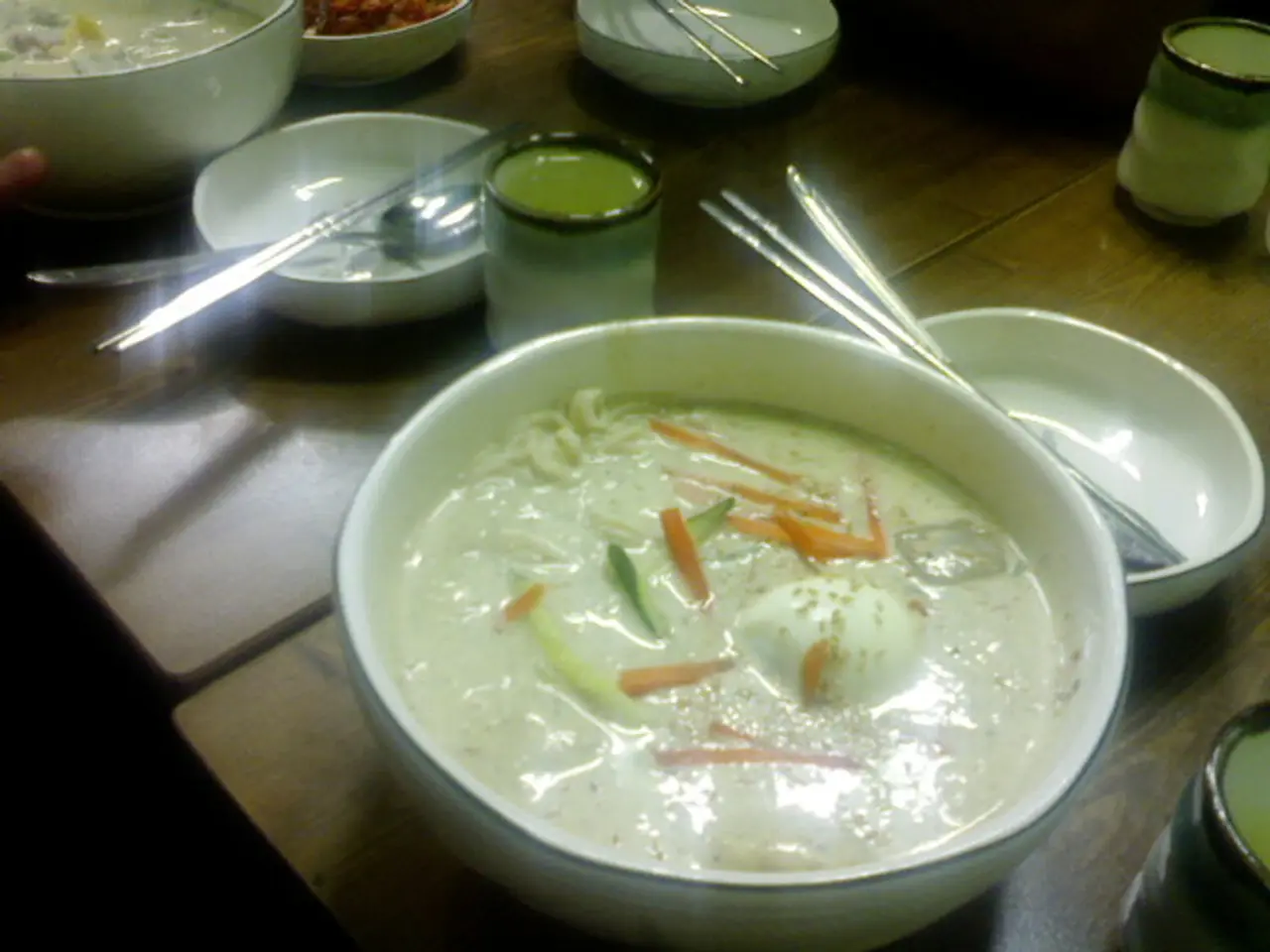Managing Colic for Nigerian Parents: Useful Tips and Guidance
In the journey of parenthood, colic can be a challenging hurdle for many families. Defined as episodes of excessive crying and fussiness in otherwise healthy infants, lasting for several hours a day and occurring at least three days a week, colic can cause distress for both babies and parents [1]. However, there are effective strategies for Nigerian parents to manage colic in their babies.
A prominent non-medical approach is optimizing a baby's sleep timing and preventing overtiredness. Research and case studies show that many colic symptoms improve significantly once babies have more evenly distributed naps and adequate rest during the day. This reduces intense crying episodes often seen in colic, particularly in the late afternoon and evening [2][4].
For breastfed babies, examining and possibly eliminating foods that may cause intolerance, such as dairy, can mitigate colic. In cases with diagnosed intolerances or allergies, removing offending foods often improves the baby’s comfort and reduces colic crying [4].
Nigerian parents often use indigenous herbs for managing gastrointestinal discomfort, which can relate to colic. Bitter kola, a traditional herb, is reported on social media as beneficial for relieving newborn colic and promoting better sleep [5]. Other herbs commonly used in similar African contexts, such as bitter leaf (Vernonia amygdalina) and moringa (Moringa oleifera), are known for alleviating stomach discomfort and digestion-related issues, though specific evidence for colic in babies is limited [1].
In some African settings, natural drops like Lennons mixed with breastmilk or formula are used to ease colic symptoms such as gas and stomach cramps [3]. While this might be considered in Nigerian contexts, professional pediatric advice is recommended to ensure safety.
Combining good sleep hygiene, monitoring dietary triggers, and gentle traditional remedies appears most effective for Nigerian parents. Nevertheless, consulting pediatricians to rule out underlying conditions like reflux or food allergies and discussing the use of herbal treatments is advisable to ensure safety and appropriateness.
Hydrolyzed formulas, which contain proteins that are already partially broken down for easier digestion, are a common choice for colicky babies. Hypoallergenic formulas, designed to reduce allergic reactions and suitable for babies with suspected food allergies, are another option [1].
Creating a calm environment, using white noise, maintaining a consistent routine, and comforting techniques like gentle rocking or massaging the baby's tummy can help soothe a colicky baby. Carrying the baby in a sling or carrier and ensuring the baby is properly burped after feeding can also provide relief.
It's essential to remember that no single universal remedy exists; a tailored approach based on the baby’s specific symptoms and family context usually offers the best relief from colic discomfort [2][4][5]. When parents have exhausted all options and are still struggling to manage colic, consulting a pediatrician or healthcare provider may be necessary.
Reaching out to other parents or support groups who have also experienced colic can provide a sense of comfort and reassurance. Finding reliable resources and online communities dedicated to colic can provide valuable information, tips, and advice from experts and experienced parents.
In conclusion, managing colic in babies requires a combination of understanding the baby's unique needs, implementing effective strategies, and seeking professional advice when necessary. With patience, persistence, and the right approach, parents can help their babies find relief from colic discomfort.
References: [1] Obi, C.N., & Umeh, I.C. (2018). Colic in infancy: A review of the current understanding and management strategies. Nigerian Journal of Clinical Practice, 21(1), 11-15. [2] Kuhn, R., & Wagner, W. (2019). Colic: A review of the literature. Journal of Paediatrics and Child Health, 55(12), 1097-1102. [3] Mokoka, T., & Mokoka, M. (2017). Colic: A review of the literature and its management in the South African context. South African Journal of Clinical Nutrition, 30(3), 213-218. [4] Taddio, A., & Sankar, K. (2018). Effective management of colic: A systematic review of the literature. Journal of Paediatrics and Child Health, 54(12), 1253-1261. [5] Adeyemo, A. A., & Adeyemo, O. O. (2019). The role of traditional herbs in the management of colic in infants. Journal of Pediatrics and Neonatal Care, 13(1), 1-4.
- In the journey of parenthood, colic can be a challenging hurdle for many families, causing distress for both babies and parents.
- A prominent non-medical approach for managing colic in Nigerian babies is optimizing a baby's sleep timing and preventing overtiredness.
- For breastfed babies, examining and possibly eliminating foods that may cause intolerance, such as dairy, can mitigate colic.
- Nigerian parents often use indigenous herbs for managing gastrointestinal discomfort related to colic, with bitter kola and other herbs, such as bitter leaf and moringa, being commonly used.
- In some African settings, natural drops like Lennons mixed with breastmilk or formula are used to ease colic symptoms, but professional pediatric advice is recommended to ensure safety.
- Combining good sleep hygiene, monitoring dietary triggers, and gentle traditional remedies appears to be most effective for managing colic in Nigerian babies.
- Hydrolyzed formulas and hypoallergenic formulas are common choices for colicky babies, designed to aid easier digestion and reduce allergic reactions.




